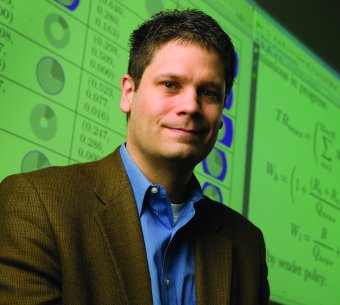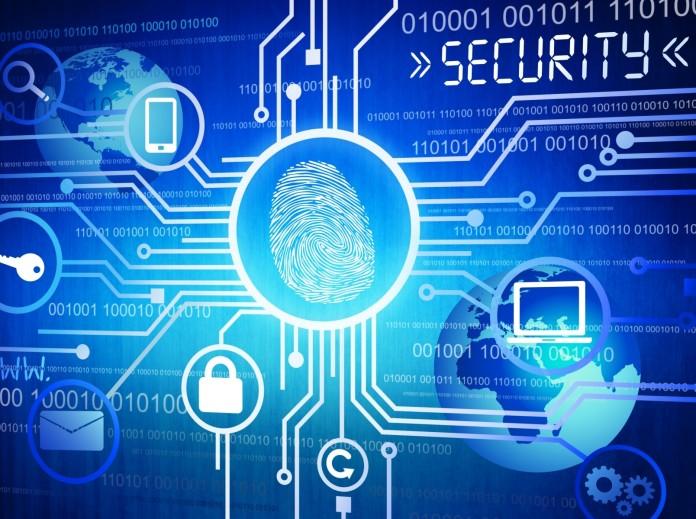Michael Nelson
By Jon Cawley
Old Dominion University computer science professor and researcher Michael Nelson found himself a central character in the saga of embattled television journalist Joy Reid, which played out over the past week in national media.
Reid, the host of "AM Joy" on MSNBC, was accused of authoring homophobic remarks and taunts on her former blog, the Reid Report. Reid apologized, in 2017, for making some remarks on the blog, saying she had "evolved" since then, but denied being behind the comments that surfaced April 18. That's where Nelson and security expert Jonathan Nichols entered the picture.
Nichols, who was hired by Reid, noted, in the wake of the recent accusations made by a Twitter user, that some of the posts appeared to be screenshot manipulations. Reid and her representatives referred the case to law enforcement and her lawyer later stated the FBI was looking into the case.
But ODU's Nelson took a deep dive into the Library of Congress web archive where he found snapshots of the controversial blog comments dating to 2006.
He started a blog about his research on April 24 with the entry: "Why we need multiple web archives: the case of blog.reidreport.com" and continued to post in the following days as his analysis developed.
In a morning email to Old Dominion University colleagues on April 28, Nelson remarked about the week-long spate of media coverage, noting of the blog's impact: "If you ever need an example of the value of rapid, non-conventional publishing, feel free to describe this."
Nelson told the Washington Post in a April 25 story that, "We don't know the full details of what Reid's lawyers alleged, so perhaps there are details we don't know. But the Internet Archive crawl engineers, plus evidence in separate web archives suggest that the claim (made by Reid) has no merit."
The ensuing back and forth among cybersecurity experts, writers and television pundits as well as supporters and detractors in the case played out in multiple national media outlets. Outlets such as The Atlantic and Vox quoted Nelson.
His involvement culminated with a lengthy CNN interview that was broadcast April 28.
"The evidence we can find in the web archives do not support her version of events," Nelson told CNN.
Later in the interview, he responded affirmatively to the interviewer's suggestion that the reason Reid said nothing in 2006 about a hack of her blog was because, "they were her words, and not those of a hacker."
"That seems the mostly likely explanation," Nelson said. "Sometimes blogs are hacked, or vandalized, but if you were interacting with the blog a lot, you would notice this and edit those comments out... so, the fact that we don't have any contemporary 2006 error... suggests that it was actually a legitimate post that stayed over time."
Shortly after Nelson's CNN interview aired, Reid conceded on her MSNBC show that her team had been unable to find evidence of hacking.
On April 30, Vice News published commentary by Nelson entitled: "The Web's History by Itself: The Joy Reid saga highlights the strengths and weaknesses of web archiving." In it, he noted that the story of Reid's blog may be closing, but it won't be the last time a similar narrative emerges with the capabilities and limitations of web archiving playing a central role.
"Social media is full of screenshots of web pages being used as evidence. Screenshots allow for annotation, highlighting, and circumventing character limits on Twitter, but the ease with which they are manipulated means they are unreliable and may fail to properly document their source," Nelson wrote on Vice's Motherboard blog. "For pictures of kittens or your friends' children, such provenance is probably not necessary, but if you seek to document a public figure's malfeasance, the evidentiary threshold is higher."
Related News Stories
Using Blockchain to Enhance Health Care Security
Old Dominion University and Sentara Healthcare are partnering on a three-year blockchain project to enhance cyber infrastructure security (More)
Breach of Trust or Breach of Data? Dylan Wittkower Weighs in on Cambridge Analytica
The New York Times and the Guardian both broke stories in mid-March about the data-mining firm Cambridge Analytica (CA), unleashing a cascade of privacy questions. (More)
Warner and Kaine Announce $1 Million in Scholarships for ODU Cybersecurity Students
U.S. Sens. Mark Warner and Tim Kaine recently announced the approval of $1 million in federal funding from the National Science Foundation to help support high-achieving students with demonstrated financial need in Old Dominion University’s cybersecurity program. (More)







